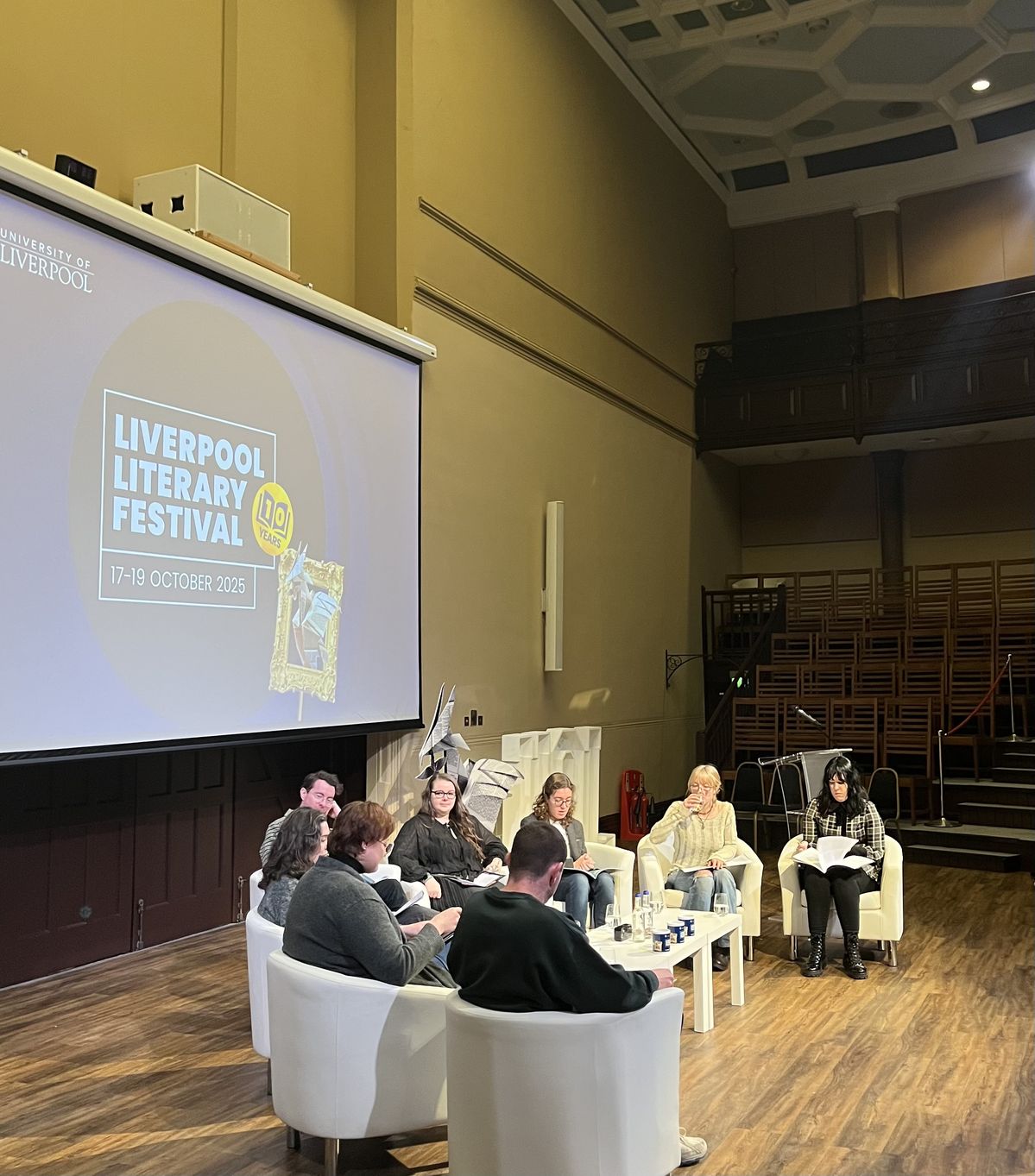6th November 2023
Listen
Listen

This October marked the 10th anniversary of the Liverpool Literary Festival, which celebrated a decade of creativity with an exciting programme of events featuring a variety of esteemed authors, their works, and their writing processes.
Presented by Dr Danny O’Connor, this year’s short story competition was divided into three categories: staff, postgraduate, and undergraduate, with prizes awarded to winners and runners-up in each. Each entrant was given the chance to read their short story aloud and discuss their take on the theme.
Given the milestone year, it felt very apt that the 2025 theme was ‘Anniversaries’; a topic that inspired an impressive range of interpretations. Each story offered a unique reflection on what it means to mark time, celebrate a special date, and define what truly constitutes a ‘milestone’.
When asked about their inspiration, some entrants drew on personal experiences, stories of family, loss and love, while others let their imaginations run wild, creating endearing characters or worlds prompted by old photographs, or leaning into the thriller genre and the idea of time as a curse. Whether exploring marriage, dementia, grief, childhood, or the memory of weddings, birthdays, or even a first period, what united all the stories was their shared engagement with the trials and triumphs that make ‘anniversaries’ both universal and profoundly individual.
“When you lose someone, you mark the anniversaries for a while. A birthday. The first year, the second, the third. In time, dates blur, and the anniversaries pass quietly by. Silent and unstoppable, time flows like tears”
– Emma Crowe, ‘The Anniversaries We Have Forgotten’.

Georgina Marsay’s winning contribution ‘Today is any other day’ offered a poignant exploration of grief and remembrance. Centred around the ‘death day’ of a loved one and the mourning process in the various days that follow ‘Day 1’, Marsay asks: Do dates really matter? Why do we commemorate certain dates over others? Why do we mark six months, one year, or years, and so on. What of ‘Day 3’, or ‘Day 85’, or ‘Day 137’ as opposed to ‘Day 345’? Her narrative beautifully captured how the real moments of reflection and reminders of the passage of time come to us unexpectedly, shining a light on the anniversaries that are ignored or that are quietly endured.
Stuart Wilk’s-Heeg’s commended story ‘Quadrennial Connections’ takes a more playful approach. Through his character Karl, a journalist with a segment called ‘Top 10 Events on This Day’, Wilk- Heeg explores the “weird, surprising and quirky” milestones that we collectively note and those we overlook. His story invites readers to consider how we construct meaning through the arbitrary marking of time.
Similarly, James Aust’s charming ‘Fish Supper’ captured the beauty of those fleeting, everyday moments; the ache you feel when a special date is forgotten, and the importance of keeping a tradition alive.
“Aye, Dad that’s it, that why we’re having our fish supper for her yeah?”
“He nods, and he smiles, warmly at them both.
“She a-always wa-wanted fish on her birthday.”
“Always, Dad, and you’d go fetch it from down the road, every year”
“I know that” he says, “I remember”.
– James Aust, ‘Fish Supper’.
Together, this year’s shortlisted stories demonstrated the enduring power of reflection, memory and the connection that those we love, and those we have lost, continue to have with have with our day-to-day lives, something that felt particularly resonant with the short story form. As the festival celebrated its own 10th anniversary, these talented writers reminded us that anniversaries, whether momentous or everyday, are not simply about the passage of years, but about the moments in between.
To read the rest of our coverage of the Liverpool Literary Festival, please click here:
https://www.liverpoolguildstudentmedia.co.uk/category/on-campus